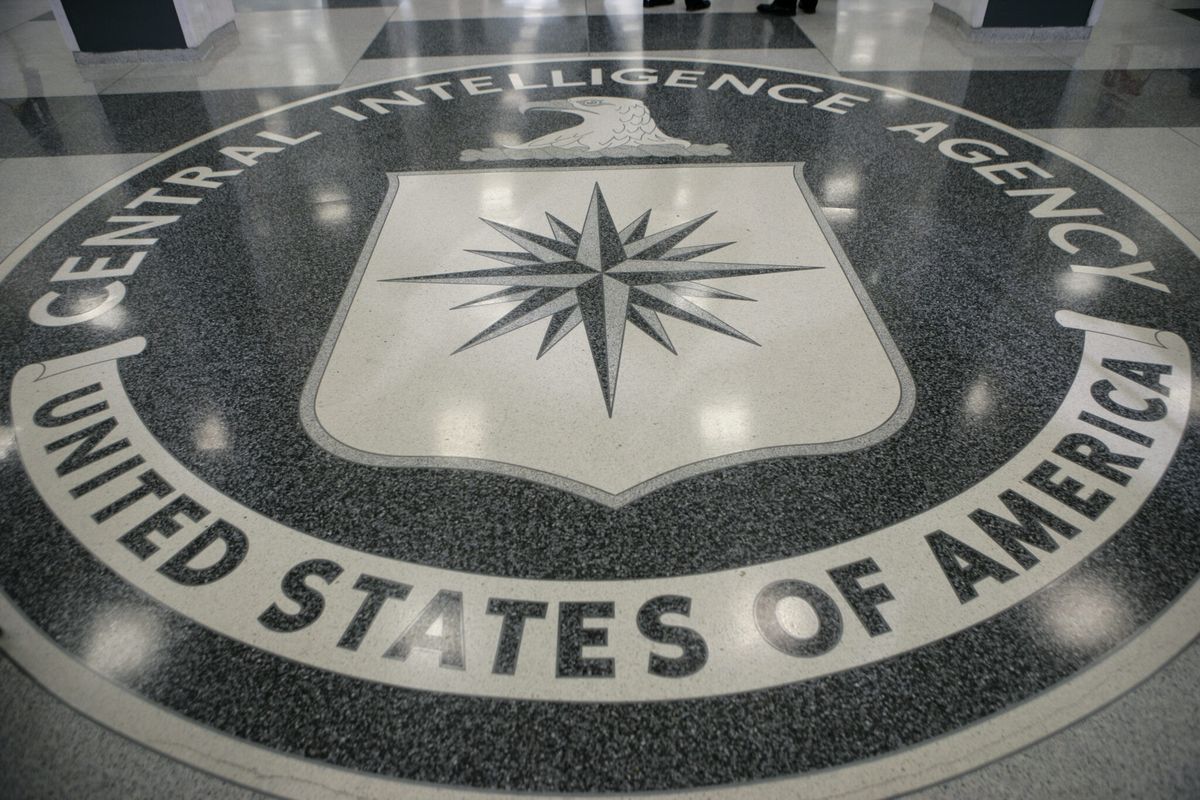OPINION — It’s been true for a long time that female intelligence professionals have been giving the CIA and the United States a tremendous advantage in the great game of espionage. Empowered and talented, American women have been exploiting the sexism that exists overseas to outwit and outwork male-dominated hostile intelligence services. They do this with savvy and discretion, a story only beginning to be told in popular culture, but it’s probably wise to point out that Taylor Sheridan’s new Rambo meets Matahari show, Special Ops: Lioness, is most definitely not telling that story.
Lioness is a blast and recommended. It puts female characters center stage in American espionage and counterterrorism operations, much as they have been in reality, for years now. It’s just that the real contributions of female spies don’t look anything like Lioness.
Lioness is a mashup of espionage and special forces operations, where the lines between the CIA and military are blurred, and amazing things happen with complete disregard for the law and actual costs of private jets. It’s eye roll fun.
If you aren't familiar with the expanding Taylor Sheridan universe, I hope your parole is approved soon and when it is, you will want to catch up with the movie Sicario and the television series Yellowstone at the very least.
Sheridan is apparently a real-life Jack Ryan, elite at everything, from screenwriting to producing, and his shows have a distinct personality. Lioness is Yellowstone with terrorists and spies instead of cowboys and ranchers. What Lioness lacks in cool boots and denim, it makes up for with private jets and NVGs (that’s night vision goggles, for the uninitiated). You get the appeal.
Like Yellowstone, Lioness jumps the shark on almost every level and there are few chalk mark operations reflecting real tradecraft, but its entertainment value makes it well worth watching.
It's not just for the President anymore. Cipher Brief Subscriber+Members have access to their own Open Source Daily Brief, keeping you up to date on global events impacting national security. It pays to be a Subscriber+Member.
One of the great privileges of serving as a real-life CIA officer in austere and dangerous places overseas, was the opportunity to meet U.S. Special Forces groups in their various forms. Most of these operators are better at what they do than I will ever be at anything, and I always thought it was a tremendous privilege to observe their ethos and dedication. The best part of Lioness is the show's celebration of the talents and esprit de corps of these operators.
Sheridan goes out of his way to distinguish them with talent, dedication, empathy and humor. What he also does with intention, is confuse just what it is that the CIA does, what the U.S. military does and how the two work together.
I imagine the SF (Special Forces, for those in the know) community responds to the idea of a unit being placed under CIA command the same way I do when analyst Jack Ryan does a HALO jump over Russia on his way to becoming the DDCIA.
Sheridan leans hard into popular misperceptions of the CIA’s role in counterterrorism and in doing so, moves it further from reality and into Jack Ryan’s gravity well. It makes for terrific entertainment, but as such Hollywood often informs public perceptions of just what it is that CIA spies do, it’s worth calling the occasional foul for gross violations of tradecraft.
The unit central to the Lioness is ostensibly a Delta Force unit assigned to Zoe Saldana’s CIA ops officer character Jo, who runs the Lioness program. Lioness uses female spies (recruited from the U.S. military) to target terrorists. The Lioness of this first season is Cruz, a Marine played by Laysla De Oliviera whom Jo recruits to target a terrorist financier. Jo in turn, reports to Nicole Kidman’s character Kaitlyn, who if I had to guess, is meant to be the CIA Deputy Director of Operations, with special jet and helicopter approval powers.
All three actors are excellent (Kidman shines as a boss spy) and as in every Sheridan show, their characters hinge back and forth between saving the world and navigating overwrought domestic dramas. (My soul for a show without an angry teenager.)
Lioness’ pilot episode gives military recruitment videos a run for their money (the Marine Corps comes off particularly well) as Cruz finds her way into the military and Jo brings her into the Lioness program.
There are seeds of real tradecraft early on and a great cautionary note on the downside of tattoos as part of the clandestine service.
I was pretty excited about what was coming together as Jo prepped Cruz to bump her first target with some legit planning and prep, only to cringe when they kicked off the operation using large black Suburban SUVs. You know who uses large black Suburban SUVs with tinted windows? Government agencies. Bad guys. Movie stars. You know who doesn’t? Undercover spies during an operation.
This incongruity between tradecraft and glamor is nothing new in popular culture, and it’s all in good fun, but the first episode starts one narrative that always leaves me a little frustrated. Like a lot of pop culture about espionage, Lioness builds a centerpiece around the idea that CIA officers continually go rogue because it’s the only way to get things done. It’s a fallacy. CIA officers go rogue less than they use private jets, which is never. ‘Going rogue’ in the CIA is turning in your accounting late.
The Cover Stories Podcast talks with Cipher Brief Expert and former Chief of Counterintelligence for CIA Mark Kelton and Executive Producer of Netflix’s new documentary series ‘Spy Ops’. Listen to Cover Stories wherever you listen to podcasts.
In episode 2, Sheridan merges the fallacy of the rogue CIA officer with an even more bothersome falsehood: the idea that CIA officers cross any line and break any law to make sure a mission succeeds. Hard no.
CIA officers just don’t torture or humiliate one another for ego or mission success. I appreciate that Sheridan gives his Special Forces characters the humanity he takes away from the CIA, and episode 2 won’t be the last time they come off as the most redeeming part of the IC community in the Lioness. It all makes me wonder if Sheridan applied to the CIA back in the day, and well…
I once had a boss who said, “if the danger is beyond a certain point, we are wiser to ask ourselves if this really needs to be done this way, rather than continuing to rationalize every risk.” She also said that if an operation ultimately depended on guns, there were others better positioned to do this than we were. She had in mind those like the Unit in Lioness.
I am a believer in the operational mindset that “if you need to draw a weapon, something has already gone really wrong,” an approach with no place in Lioness. Sheridan’s goal is to mix just enough real tradecraft into James Bond’s martini to change the flavor without reducing the buzz. (I see you bartender, and will have another, but I will also note there are a few rocks in this glass.)
There are a lot of fun tradecraft foibles in Lioness, including one of my favorites, the sensitive meeting at a high-end restaurant. If you have to pause conversation every time someone approaches your table at The Willard, maybe it's not the right spot for that chat? No one loves the high-end government sponsored meal more than the average case officer, but even the most crass amongst them would reserve a private room.
Black Suburbans remain vital to every operation in Lioness and viewers should appreciate the covert op matte-black jet flying in daytime. There is also a great Fairfax public schools joke that will land with anyone living in the Beltway.
Alongside the earnest portrayal of Unit dynamics (including efficient tactical movements), Sheridan gets a few other espionage sensibilities right. Mostly.
Soldana offers a “fireside chat” to Cruz that, dramatic circumstances aside, really does resemble the sort of steady hand a Chief of Station might lend a frazzled junior officer. Lioness also nails one great truth of espionage - sex and ops don’t mix. It may make for titillating television, but it's a disaster for operations. If I had to guess, and it would be an informed one, sexual indiscretions have derailed more intelligence careers than anything else and that’s probably for the better.
Sheridan also takes on the fact that the CIA is prohibited by law from conducting operations inside the United States. It just doesn’t deter him from such a storyline.
Sheridan doesn’t shy away from the scandal that such a thing would cause and it allows for some great exchanges between CIA, State Department and White House officials and gives reason to spend quality time with Morgan Freeman. He’s just so damn good. It’s a little thing and I know Sheridan isn’t thinking in these terms, but it’s one of those repeated misrepresentations that slowly seep into the public conscience and eventually become accepted as truth.
Each week, The Dead Drop uses its own sources and methods to bring you insider national security gossip. This week’s Drop is ready for pick up only in The Cipher Brief.
I don’t know that the Agency will see an increase in applications post-Lioness the way people living in Montana have seen an increase in real estate prices since Yellowstone aired, but I’m not ruling it out. Sheridan has tapped a vein of popular culture by offering a veneer of historical accuracy to Hollywood hijinx, and while this is all good if you own in Bozeman, it's a drag for those trying to highlight the amazing things the IC does while denying we killed Kennedy.
All this said, there is fun to be had with Lioness and I offer here, a viewing ops plan to put you on the X:
Primary viewing window: One night a week, wearing all black, with the adult members of your Unit.
Alternate viewing window: Straight binge, wearing camo and ranger undies, with your bar fight crew
Beverage: Beer in bottle, room temperature
Snack: Protein bars, or whatever you would find on a private jet
Post-viewing song: Freebird, Lynyrd Skynyrd
Post-viewing book: Hall of Mirrors: Virginia Hall- America’s Greatest Spy of WWII
The Cipher Brief is committed to publishing a range of perspectives on national security issues submitted by deeply experienced national security professionals.
Opinions expressed are those of the author and do not represent the views or opinions of The Cipher Brief.
Have a perspective to share based on your experience in the national security field? Send it to Editor@thecipherbrief.com for publication consideration.
Read more expert-driven national security insights, perspective and analysis in The Cipher Brief















